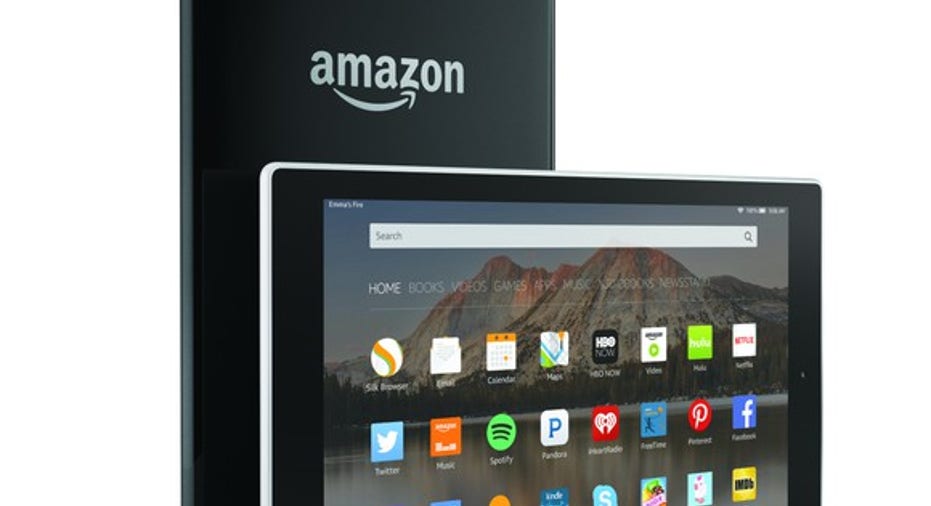Why Amazon Owns Digital Reading, but Can't Kill the Physical Book

Physical books have proven especially resilient to obsolescence. Despite the fact that e-books are much less expensive and people can buy them without leaving the house, a shockingly large portion of the reading public remains loyal, at least partly, to the printed word.
This isn't like letter writing, where a small group of romantics feel that putting pen to paper conveys something an email never can. Digital books and physical books both have a place in the market, with 65% of Americans having read a print book in the last year and 28% reading a digital one, according to a recent Pew report.
It's not that digital, led byAmazon(NASDAQ: AMZN), hasn't taken a piece of the market, it certainly has, and ultimately it may take much more as convenience trumps tradition. But unlike many areas where the convenience of digital items has overcome nostalgia for older formats (thinks CDs and newspapers), books are proving different, which Wired's Davey Alba explained well in a piece earlier this year:
It's a case of not just wanting to have our cake and eat it, too, but actually being able to do so. New research from PayPal in a report [opens in PDF] subtitled "eBooks and Gaming: Sentiments and Behavior" suggests that Amazon does and will continue to dominate the e-book market, but it won't be able to kill the physical book anytime soon.
Tablets are the top choice for reading digital books. Image source: Amazon.
Why is Amazon both winning and losing?
Amazon thoroughly dominates the digital book market, according to the PayPal research, with 85% of all digital readers doing at least some of their shopping with the online leader. The next closest competitor, ebooks.com, gets at least some purchases from 20% of the buying public while Google Play Books comes in at 19%, Apple's iBook nabs orders from 13%, and Barnes & Noble's (NYSE: BKS) NOOK store still has 11%.
But even though Amazon has become the dominant bookseller for digital books, that does not mean the company has won the overall war. "The physical book isn't going anywhere, but a mixture of digital and physical has become the preferred customer option," PayPal stated.
The online payment company's research showed that 41% of those surveyed stated that they "prefer a mix of both hard copies and eBooks," while only 25% wanted to own digitally only and 11% wanted to own hard copy only. Because Amazon sells both print and digital books, it holds a relatively unique position in the market, being able to serve people the book they want in the format they want it.
Barnes & Noble was really the only other play that could ever do that, but the slow death of the Nook really takes the company out of the digital game.
Will e-books ultimately prevail?
E-books are nearly always cheaper, usually dramatically so, than their physical counterparts. That, plus the prevalence of digital reading devices (tablets, smartphones, and dedicated e-readers) should have, if not killed, at least wounded physical book sales by now.
That has not happened because in some cases clearly a book is about more than just reading. Whether it's a question of wanting the tactile experience of holding a book, wanting to have something to display on shelves, or just a latent stubbornness, it's clear that physical books will continue to have a place.
That may eventually change and hard copy books may become a niche item like vinyl records. So far, however, it appears clear that a large percentage of the reading public has embraced the future while also clinging to the past. Amazon is getting its piece of the business regardless -- a big one between digital and physical sales -- but bookstores may not follow record stores into oblivion any time soon.
10 stocks we like better than Apple When investing geniuses David and Tom Gardner have a stock tip, it can pay to listen. After all, the newsletter they have run for over a decade, Motley Fool Stock Advisor, has tripled the market.*
David and Tom just revealed what they believe are the ten best stocks for investors to buy right now... and Apple wasn't one of them! That's right -- they think these 10 stocks are even better buys.
Click here to learn about these picks!
*Stock Advisor returns as of October 3, 2016
Daniel Kline owns shares of AAPL. He reads mostly physical books. The Motley Fool owns shares of and recommends AMZN, AAPL, and PYPL. The Motley Fool has the following options: long January 2018 $90 calls on AAPL and short January 2018 $95 calls on AAPL. Try any of our Foolish newsletter services free for 30 days. We Fools may not all hold the same opinions, but we all believe that considering a diverse range of insights makes us better investors. The Motley Fool has a disclosure policy.



















